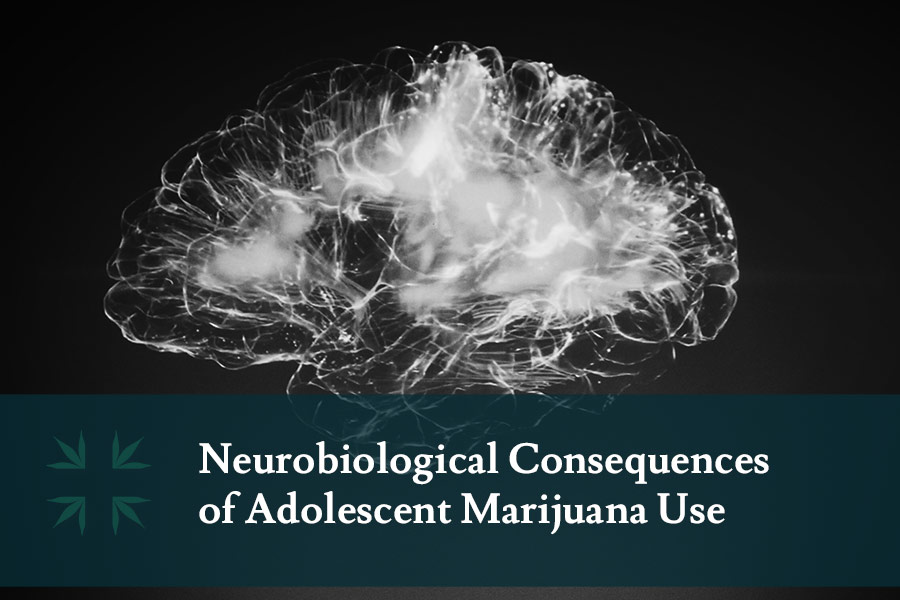Adolescent cannabis use could have long-term negative effects on developing cognitive functions, according to new research.
The study, carried out by a Canadian team of researchers at Universite de Montreal and McMaster University, found that cannabis use among teens is associated with impairments in working memory and inhibitory control, as well as gaps in memory recall and perceptual reasoning.
The study’s authors note Canada’s recent legalization of marijuana and the fact that an estimated 20 percent of teens use cannabis as cause to investigate the impact of marijuana use on the adolescent brain. It is at this stage that the brain matures its cognitive functions such as working memory, decision-making, impulsivity control and motivation.
From a sample of 3,826 7th grade students in Greater Montreal, comprising 5 percent of all high school students in the region at that age, the team of researchers collected data on the year-to-year changes of both alcohol and cannabis use, and tested the teens’ cognitive functions.
In general, the researchers found substance use to be associated with lower cognitive functioning.
The team also looked at whether sex differences arose among the sample of adolescents in response to cannabis use. Though tentative, the data suggests that male and female students were equally affected by cannabis in terms of inhibitory control, but that the memory functions of male students were more strongly impacted than with female students.
One team of researchers focused specifically on the effects of THC on the adolescent brain of rats. They found that THC exposure in adolescents can lead to changes in the prefrontal cortex of the brain and in a brain circuit, the mesolimbic pathway, which is very similar to that seen in patients exhibiting schizophrenia. Their research also indicates that THC exposure in adolescents is associated with adverse affects on social interactions, memory processing and anxiety regulation.
Another team of researchers analyzed the mechanisms of addiction, understood as that which motivates an individual to act and make decisions against their interest.
To do this, the team compared the decision-making of a group exhibiting signs of cannabis addiction with a healthy control group. Each group was then asked to participate in an effort-based decision-making test.
The results from this test suggest that there are differences in how the value of the reward (in this case, money received) and the cost of the effort (the amount of work done) is encoded in individuals who are addicted to cannabis when compared with healthy controls. These differences were identified by observed activity in specific regions of the brain known to be important for motivation.
While these findings give cause for concern, the study also suggests at ways in which harms to the development of the adolescent brain through cannabis use could be reversed.
For instance, the team of researchers found that administering drugs which restore the normal functions of the prefrontal cortex in early adulthood could help reverse the effects of THC exposure during adolescence. Their work also demonstrated that taking THC alongside drugs which prevent THC-induced disruption in brain-signaling pathways could stop the development of schizophrenia-like effects.

Leave A Comment